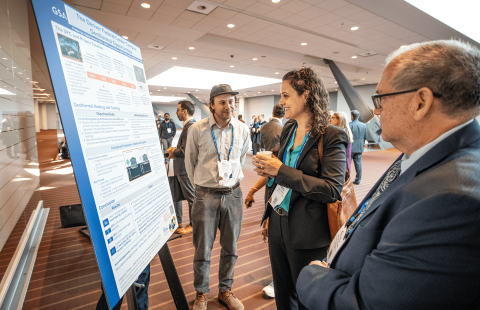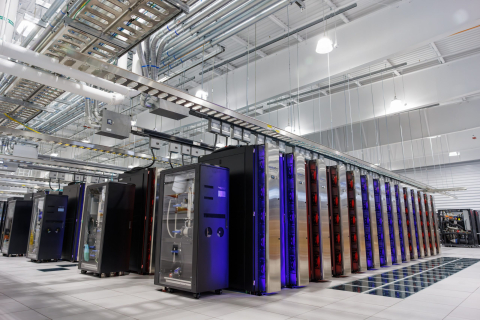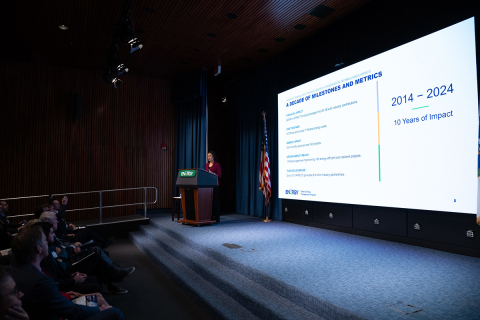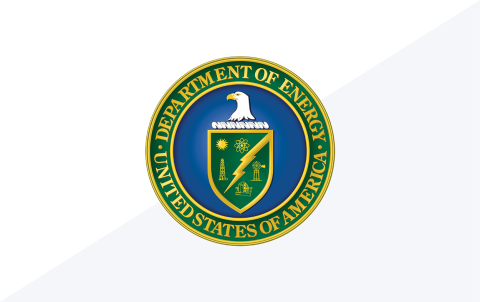The Federal Energy Management Program (FEMP) publishes news about training opportunities, recently released documents and online tools, award winners, events, and more.
To learn more about FEMP events and how to stay updated, visit the FEMP Newsroom.

FEMP’s 2025 Summer CAMP brought together federal energy and water professionals for four days of training, collaboration, and hands-on learning.

Speakers discuss lessons learned and best practices and identify replicable solutions that can be applied across the federal government.
From cost savings to enhanced energy security, exemplary achievements from eight agencies underscore their vital role in shaping America's energy future.

One of the best ways to understand the impact of DOE Scholars is to hear from our past participants. Learn how Navy veteran Matt Gurr got inspired to focus his legal career on energy and government.

In 2024, the Federal Energy Management Program (FEMP) continued its mission to build the capacity of the Federal agency workforce to achieve efficient, secure, and resilient energy use in facilities and fleets, saving energy and taxpayer money.

FEMP's data center design guide updates focus on the new or improved technologies that have emerged since 2011. With these innovations come greater energy and water demands—and increased need to make data centers of all kinds more efficient.

One of the best ways to understand the impact of DOE Scholars is to hear from our past participants. Learn how U.S. Army veteran Agustin Martinez got the experience he needed for a career transition from the military to the private sector.

On October 30, 2024, the Federal Energy Management Program announced project selections for funding from the second and final installment of the $250 million Assisting Federal Facilities with Energy Conservation Technologies grant program.

Funding from Investing in America Will Support 67 Energy Efficiency and Clean Energy Projects at Federal Facilities, Saving Taxpayers $41 Million Annually While Cutting Carbon Pollution

One of the best ways to explore DOE Scholars is to hear from our past participants. Learn how Lauren Posey channeled a childhood passion for nature to earn a spot in DOE Scholars and a job at the National Park Service.

